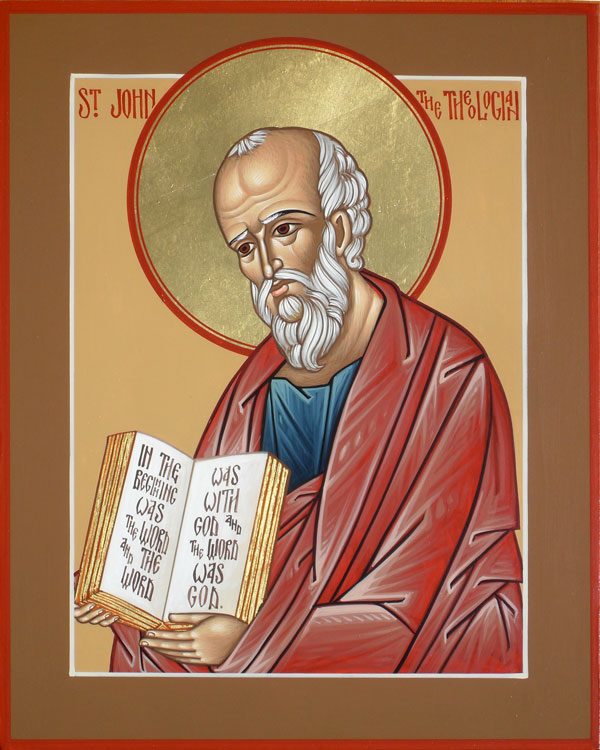 On May 8, we celebrate one of the two feasts of the Holy Apostle and Evangelist John, the brother of James. The other is on September 26, the day of his falling asleep. The fourth Gospel is attributed to John, and we can truly call it a “theo-logical,” for it witnesses most clearly to the mystery of the Incarnation, of the Word of God taking flesh in the womb of the Holy Theotokos for our salvation. It is the most sublime Gospel, and it gave John the title “Theologian.” The Byzantine Church gives this gospel a certain priority, and it is read in the most joyful and glorious time of the year, from Pascha to Pentecost. This Gospel is the very essence of the apostolic witness, through which we come to faith in Christ, as indeed John foretold, when the risen Jesus says to Thomas, “Blessed are those who have not seen and have believed,” (John 20:29) because we have all heard of the divinity of the Lord through the witness of the apostles.
On May 8, we celebrate one of the two feasts of the Holy Apostle and Evangelist John, the brother of James. The other is on September 26, the day of his falling asleep. The fourth Gospel is attributed to John, and we can truly call it a “theo-logical,” for it witnesses most clearly to the mystery of the Incarnation, of the Word of God taking flesh in the womb of the Holy Theotokos for our salvation. It is the most sublime Gospel, and it gave John the title “Theologian.” The Byzantine Church gives this gospel a certain priority, and it is read in the most joyful and glorious time of the year, from Pascha to Pentecost. This Gospel is the very essence of the apostolic witness, through which we come to faith in Christ, as indeed John foretold, when the risen Jesus says to Thomas, “Blessed are those who have not seen and have believed,” (John 20:29) because we have all heard of the divinity of the Lord through the witness of the apostles.
Some try to discredit Christian faith by pointing out that John’s Gospel was the last to be written, that the first Gospel, Mark, does not mention the divinity of Jesus, and that faith in the Incarnation is then a later Christian development. They do this by trying to fit the Gospels into a linear line, from the earliest to the latest, and it is easy to fall for this. However, the development of the Gospels in not linear, but they arise from different communities, and each has a vision of Christ. Indeed, does not St. Mathew’s Gospel proclaim the truth of the Trinity, where the risen Jesus proclaims, “Go, therefore, and make disciples of all nations, baptizing them in the name of the Father, and of the Son, and of the holy Spirit” (Matthew 28:19).
And – yes – there are many other witnesses to Jesus’ divinity in the epistles and apostolic writings. The letter to the Hebrews says, “[Jesus] is the refulgence of [the Father’s] glory, the very imprint of his being, and who sustains all things by his mighty word” (Hebrews 1:3). Rejoice, therefore, in this holy season in the glory of the risen Christ so beautifully proclaimed by John. It is John who tells us, “God is light, and in him there is no darkness at all. If we say, “We have fellowship with him,” while we continue to walk in darkness, we lie and do not act in truth. But if we walk in the light as he is in the light, then we have fellowship with one another, and the blood of his Son Jesus cleanses us from all sin” (1 John 1:5-7). It is John who tells us, “Beloved, let us love one another, because love is of God; everyone who loves is begotten by God and knows God. Whoever is without love does not know God, for God is love” (1 John 4:7-8). In every Liturgy we accept this apostolic witness when the deacon invites us, “Let us love one another, so that with one mind we may profess.”
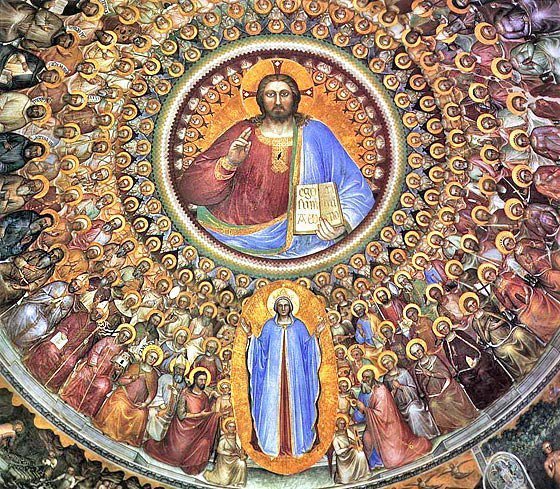 The Greek Church celebrates the great company of saints today. The Latin Church celebrates All Saints on November 1.
The Greek Church celebrates the great company of saints today. The Latin Church celebrates All Saints on November 1. On May 8, we celebrate one of the two feasts of the Holy Apostle and Evangelist John, the brother of James. The other is on September 26, the day of his falling asleep. The fourth Gospel is attributed to John, and we can truly call it a “theo-logical,” for it witnesses most clearly to the mystery of the Incarnation, of the Word of God taking flesh in the womb of the Holy Theotokos for our salvation. It is the most sublime Gospel, and it gave John the title “Theologian.” The Byzantine Church gives this gospel a certain priority, and it is read in the most joyful and glorious time of the year, from Pascha to Pentecost. This Gospel is the very essence of the apostolic witness, through which we come to faith in Christ, as indeed John foretold, when the risen Jesus says to Thomas, “Blessed are those who have not seen and have believed,” (John 20:29) because we have all heard of the divinity of the Lord through the witness of the apostles.
On May 8, we celebrate one of the two feasts of the Holy Apostle and Evangelist John, the brother of James. The other is on September 26, the day of his falling asleep. The fourth Gospel is attributed to John, and we can truly call it a “theo-logical,” for it witnesses most clearly to the mystery of the Incarnation, of the Word of God taking flesh in the womb of the Holy Theotokos for our salvation. It is the most sublime Gospel, and it gave John the title “Theologian.” The Byzantine Church gives this gospel a certain priority, and it is read in the most joyful and glorious time of the year, from Pascha to Pentecost. This Gospel is the very essence of the apostolic witness, through which we come to faith in Christ, as indeed John foretold, when the risen Jesus says to Thomas, “Blessed are those who have not seen and have believed,” (John 20:29) because we have all heard of the divinity of the Lord through the witness of the apostles.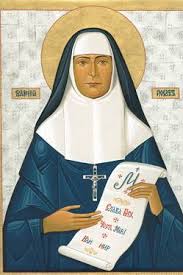 The Synod of Bishops of the Ukrainian Catholic Church have designated April 7, 2019 – April 7, 2020 as a special Jubilee Year marking the 100th Anniversary of the passing into eternal life of
The Synod of Bishops of the Ukrainian Catholic Church have designated April 7, 2019 – April 7, 2020 as a special Jubilee Year marking the 100th Anniversary of the passing into eternal life of 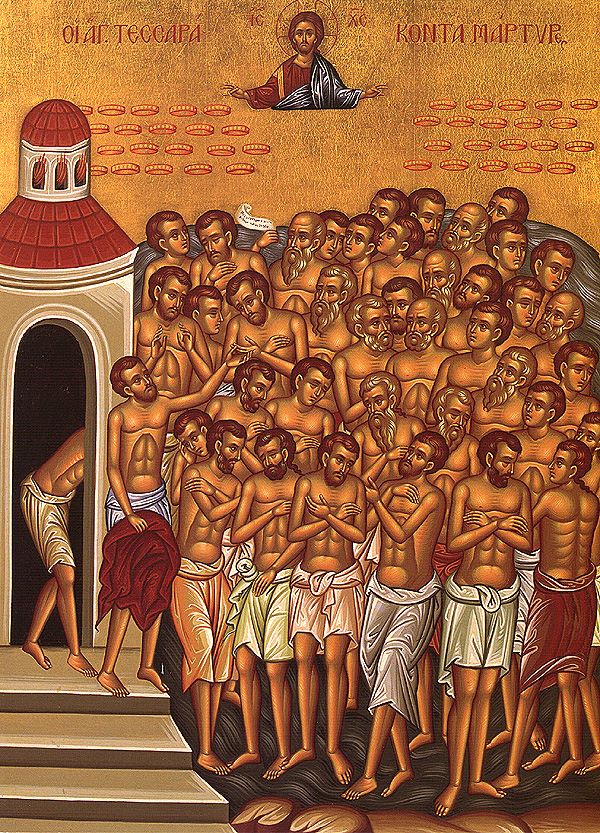 Today we celebrate the forty martyrs of Sebaste, witnesses to Jesus Christ as Lord and Savior.
Today we celebrate the forty martyrs of Sebaste, witnesses to Jesus Christ as Lord and Savior.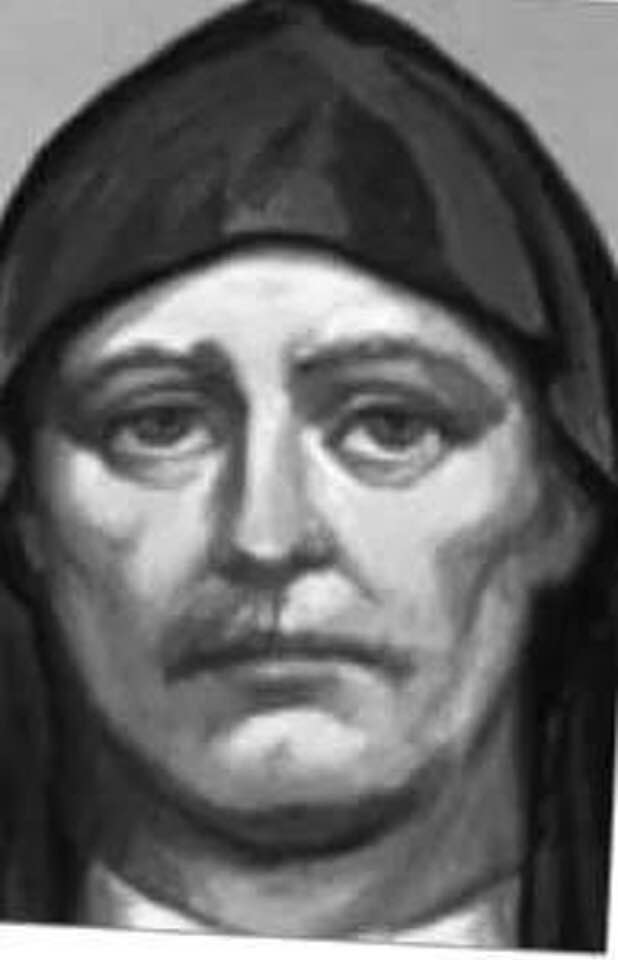 It was on this date in 1907, that Father Vitaliy Bayrak was born. He was a Ukrainian Greek Catholic Basilian priest.
It was on this date in 1907, that Father Vitaliy Bayrak was born. He was a Ukrainian Greek Catholic Basilian priest.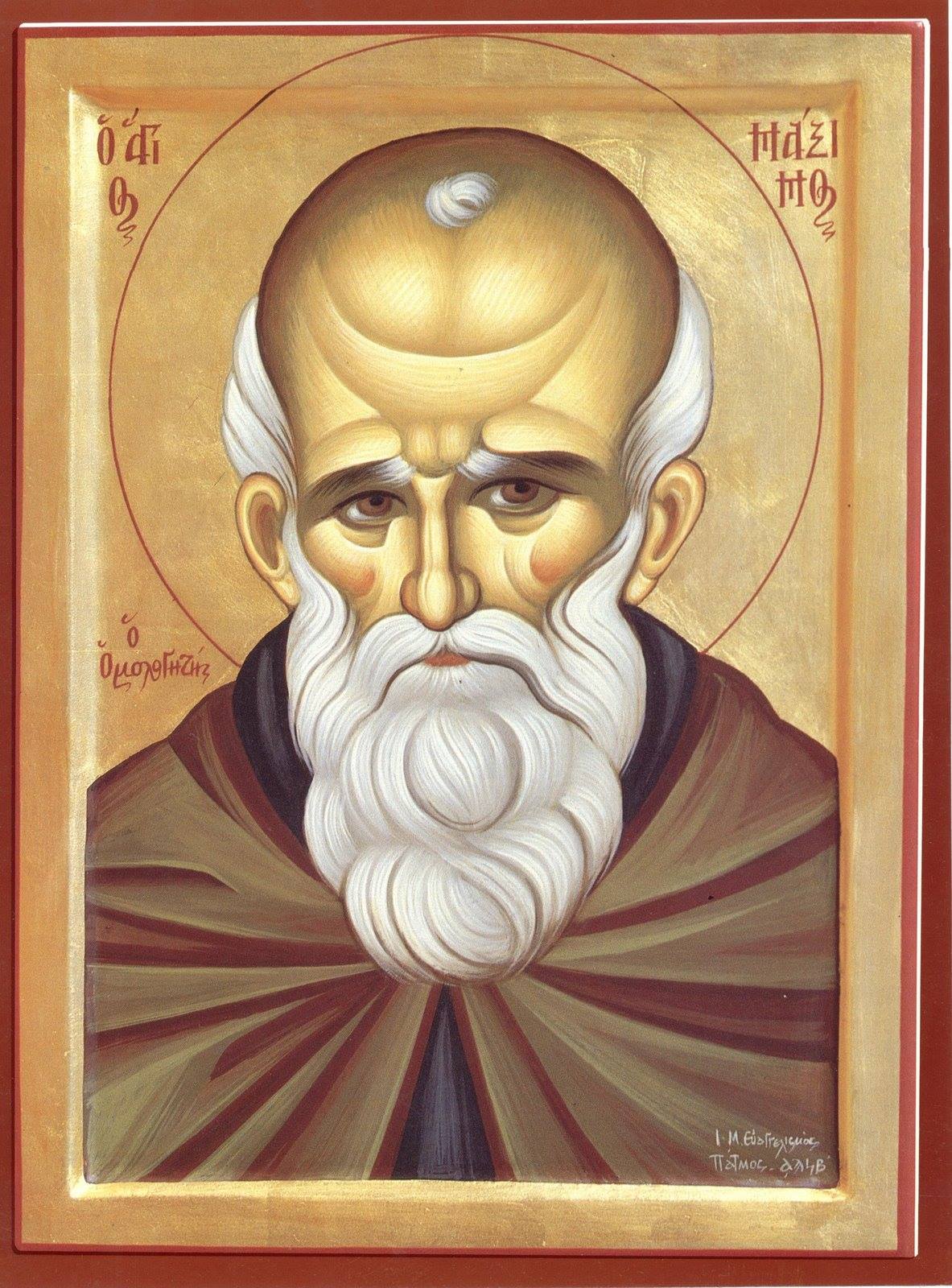 Father John Meyendorff called St. Maximus the Confessor the “Father of Byzantine Theology.” Though he lived long after the Council of Chalcedon, he perhaps drew out the full importance of its confession that Jesus, the Son of God was one in essence with the Father, and yet also united in essence with us in his human nature. Here we see what the gospel stories of Christ’s birth and baptism are truly revealing to us. We call the incarnation, the assumption of the Word of God of human nature, a mystery. This is because we cannot wrap our human minds around this theological reality. To form mental concepts, which we might call “ideologies” are dangerous because they skew the reality. Before Maximus, some theologians put so much emphasis on Christ’s humanity that his divinity was compromised (for example, Arianism or Nestorianism).
Father John Meyendorff called St. Maximus the Confessor the “Father of Byzantine Theology.” Though he lived long after the Council of Chalcedon, he perhaps drew out the full importance of its confession that Jesus, the Son of God was one in essence with the Father, and yet also united in essence with us in his human nature. Here we see what the gospel stories of Christ’s birth and baptism are truly revealing to us. We call the incarnation, the assumption of the Word of God of human nature, a mystery. This is because we cannot wrap our human minds around this theological reality. To form mental concepts, which we might call “ideologies” are dangerous because they skew the reality. Before Maximus, some theologians put so much emphasis on Christ’s humanity that his divinity was compromised (for example, Arianism or Nestorianism).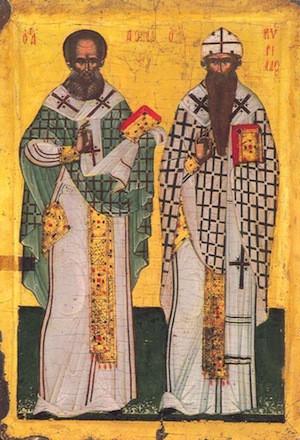 Our Holy Fathers Athanasius and Cyril, Archbishops of Alexandria are honored by the Church today.
Our Holy Fathers Athanasius and Cyril, Archbishops of Alexandria are honored by the Church today.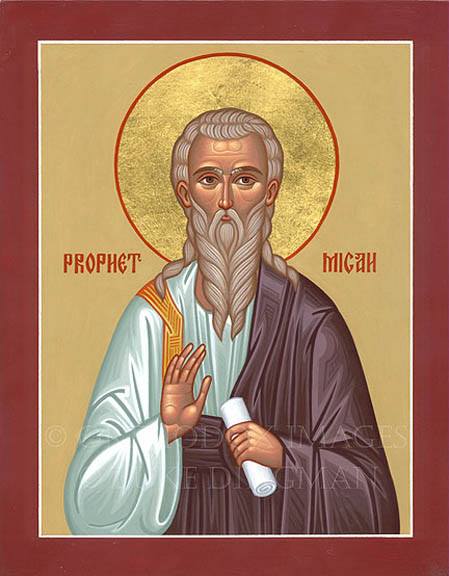 Micah is the final prophet whose memory we celebrate in the Feast of Light. However, in many of his prophecies, he speaks out of darkness. He was an ancient prophet, of whom Jeremiah says: ““Micah of Moresheth used to prophesy in the days of Hezekiah, king of Judah, and he said to all the people of Judah: Thus says the Lord of hosts: Zion shall be plowed as a field, Jerusalem, a heap of ruins, and the temple mount, a forest ridge” (Jeremiah 26:18). Micah laments, in words that could be repeated in our own times: “The faithful have vanished from the earth, no mortal is just! They all lie in wait to shed blood, each one ensnares the other” (7:2). Yet for all that, he most clearly foretells the coming of the Prince of Peace.
Micah is the final prophet whose memory we celebrate in the Feast of Light. However, in many of his prophecies, he speaks out of darkness. He was an ancient prophet, of whom Jeremiah says: ““Micah of Moresheth used to prophesy in the days of Hezekiah, king of Judah, and he said to all the people of Judah: Thus says the Lord of hosts: Zion shall be plowed as a field, Jerusalem, a heap of ruins, and the temple mount, a forest ridge” (Jeremiah 26:18). Micah laments, in words that could be repeated in our own times: “The faithful have vanished from the earth, no mortal is just! They all lie in wait to shed blood, each one ensnares the other” (7:2). Yet for all that, he most clearly foretells the coming of the Prince of Peace.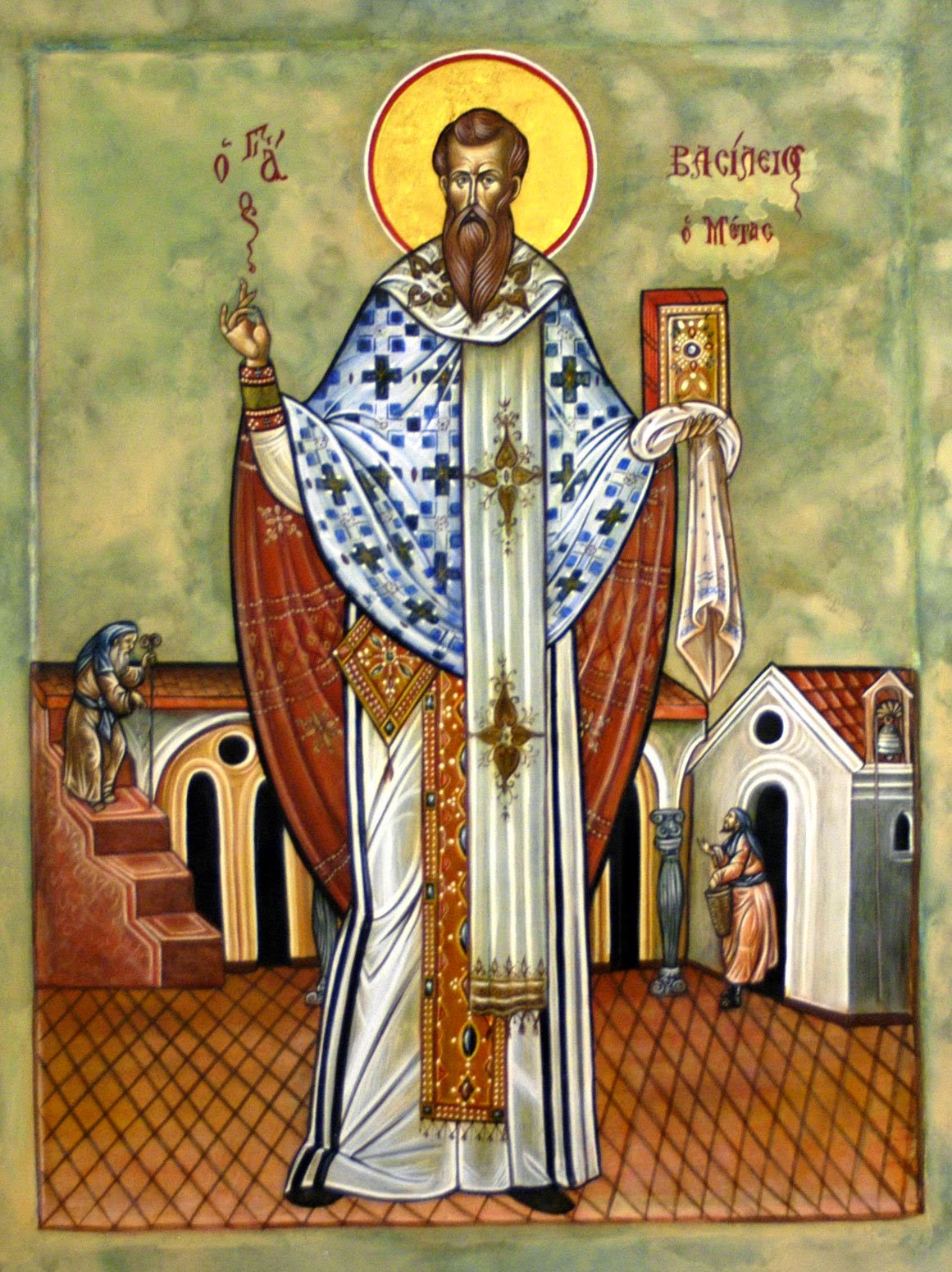 A blessed new year to all of you! Christ is born! Happy 2019!!!
A blessed new year to all of you! Christ is born! Happy 2019!!!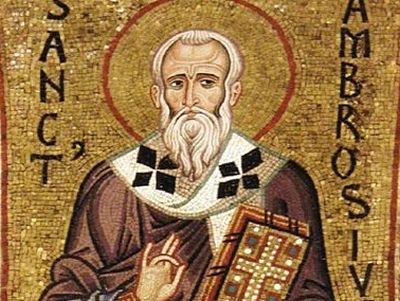 St. Ambrose was the greatest Archbishop of Milan, at a time when it was the center of the Empire. He was elected bishop when he was still a catechumen and proved to be most competent—in administration as well as theology, and was a holy and sincere Christian. He had been a governor before and knew how “to talk to power.” When the Emperor Theodosius had 7,000 Thessalonians slaughtered over the assassination of their governor, he excommunicated him for his horrendous crime – and made it stick, bringing Theodosius to repentance.
St. Ambrose was the greatest Archbishop of Milan, at a time when it was the center of the Empire. He was elected bishop when he was still a catechumen and proved to be most competent—in administration as well as theology, and was a holy and sincere Christian. He had been a governor before and knew how “to talk to power.” When the Emperor Theodosius had 7,000 Thessalonians slaughtered over the assassination of their governor, he excommunicated him for his horrendous crime – and made it stick, bringing Theodosius to repentance.